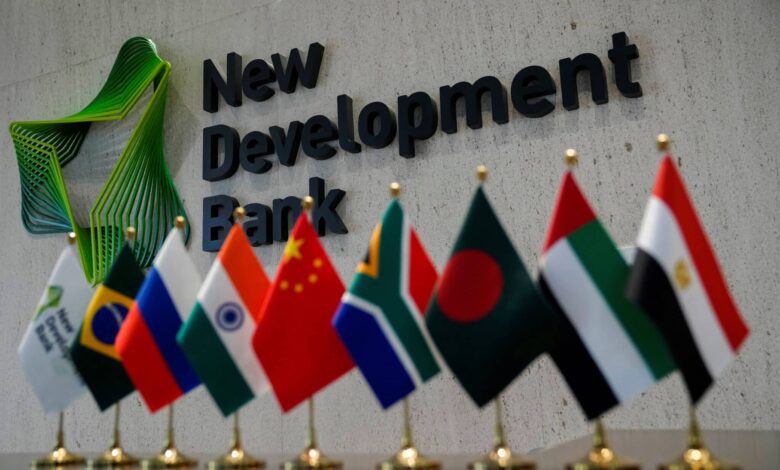Algeria joins BRICS’ new development bank amid rising global geopolitical tensions

Algeria joins BRICS' new development bank amid rising global geopolitical tensions
As global economic and geopolitical tensions intensify, Algeria has made a strategic move by joining the New Development Bank (NDB) of the BRICS group, which consists of Brazil, Russia, India, China, and South Africa.
The BRICS coalition, representing some of the world’s leading emerging economies, has increasingly positioned itself as an alternative to Western-dominated financial institutions like the International Monetary Fund (IMF) and the World Bank. This latest expansion underscores the group’s ambitions to forge a multipolar global financial order.
Algeria’s Strategic Entry into the NDB
Algeria’s accession to the NDB was officially confirmed by the Bank’s Board of Governors, chaired by former Brazilian President Dilma Rousseff, during their 9th annual meeting held in Cape Town, South Africa.
The move is part of Algeria’s broader strategy to diversify its economic partnerships and bolster its international standing.
By joining the NDB, Algeria aims to reduce its reliance on traditional financial systems dominated by the West and to strengthen its ties with countries that share similar economic and political outlooks.
“This decision marks a significant milestone for Algeria, as it opens up new avenues for financial cooperation and development,” a spokesperson for the NDB stated.
“It reflects our commitment to providing a platform that caters to the specific needs of emerging markets and developing economies.”
A Strategic Alternative to Traditional Financial Institutions
Founded in 2015, the NDB has rapidly established itself as a key player in global development finance, offering more equitable terms and conditions tailored to the needs of emerging economies.
The Bank’s approach is notably more flexible than that of the IMF or the World Bank, which are often criticized for their stringent requirements and Western-centric policies.
Algeria’s entry into the NDB not only aligns it closer with the BRICS nations but also enhances its economic sovereignty.
This strategic shift reflects a broader trend in the Maghreb region, where nations are increasingly seeking new alliances and alternatives to navigate a rapidly polarizing global landscape.
For Algeria, joining the NDB is a bold statement of its intent to play a more proactive role in shaping the new economic dynamics of the world.
Implications for the Maghreb and Beyond
The NDB’s growing appeal to countries like Algeria highlights the BRICS’ rising influence in global finance.
As more nations look beyond the traditional financial powerhouses of the West, the BRICS bloc and its institutions are set to gain further traction.
Algeria’s move could inspire other nations in the region to follow suit, seeking to leverage the NDB’s resources to drive their development agendas while maintaining greater control over their economic futures.
In an era where the global financial order is increasingly contested, Algeria’s membership in the NDB sends a clear message: the pursuit of a more balanced and inclusive global economy is not just aspirational, but achievable.
About The Author
dailymailafric
I am an avid African news observer, and an active member of Daily Mail Africa.
I’m Passionate about staying informed on diverse topics across the continent,
I actively contribute to publishing on political, economic and cultural developments in Africa.



